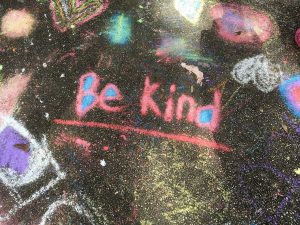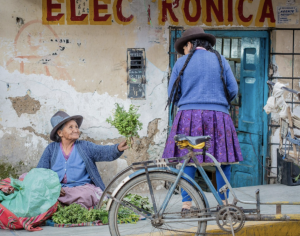By Teresa Amaral Beshwate, MPH
“One of the great ironies of life is this: He or she who serves almost always benefits more than he or she who is served.” – Gordon Hinckle
 Research has clearly shown the tremendously positive impact of serving others. Those who volunteer have lower mortality rates, greater functional ability, and lower rates of depression than those who do not volunteer. Volunteers report a greater sense of life satisfaction and meaning and purpose. They feel physically healthier and enjoy a better sense of well-being and lower stress levels. Twenty nine percent of volunteers who live with a chronic condition say that volunteering has helped them manage their chronic illness.
Research has clearly shown the tremendously positive impact of serving others. Those who volunteer have lower mortality rates, greater functional ability, and lower rates of depression than those who do not volunteer. Volunteers report a greater sense of life satisfaction and meaning and purpose. They feel physically healthier and enjoy a better sense of well-being and lower stress levels. Twenty nine percent of volunteers who live with a chronic condition say that volunteering has helped them manage their chronic illness.
Even when controlling for other factors such as age, health, and gender, research has found that when we serve others, we are more likely to live longer and have less incidence of heart disease.
A global pandemic brings everything to a screeching halt, it seems. Although volunteering in the formal sense may not be possible during a time of physical distancing, we can still be in service to others through RAKtivism.
 A “RAKtivist,” is someone who practices Random Acts of Kindness (RAK). Just one RAK a day reduces stress, anxiety and depression, plus your body is flooded with hormones such as serotonin, oxytocin and endorphins that help you feel calmer. RAKtivists report being energized, happier, have fewer aches and pains and feel more confident than their non-RAKtivist counterparts.
A “RAKtivist,” is someone who practices Random Acts of Kindness (RAK). Just one RAK a day reduces stress, anxiety and depression, plus your body is flooded with hormones such as serotonin, oxytocin and endorphins that help you feel calmer. RAKtivists report being energized, happier, have fewer aches and pains and feel more confident than their non-RAKtivist counterparts.
There are a variety of ways to spread kindness, even at a distance. Consider sending an encouraging email, picking up a neighbor’s prescription along with your own, praising a local business online, sharing a favorite recipe, sewing a facemask, baking someone a cake, sending a care package, a simple smile and wave, an unexpected phone call or text, a handmade card, a handmade gift are a few ideas. Reach out to local charities and ask how you can best support them with your time, from the safety of your home.
What RAK’s can you think of, and how many can you pull off in a week?
Random acts of kindness create a chain reaction that spreads through communities and beyond. And it all starts with just one person.
Get more ideas from www.randomactsofkindness.org and start your chain reaction today.
*Note: This article was originally published March 25, 2020 and was updated Sept. 20, 2021
